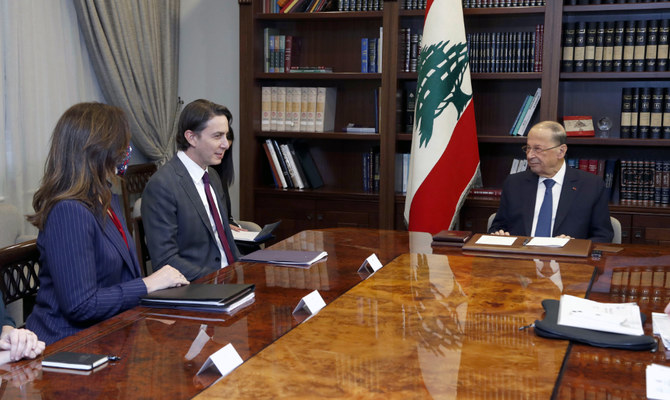
by middleeasteye.net — Washington’s top Middle East diplomat has said Lebanon will likely have to bear more pain before the impoverished Mediterranean country forms a new government, with the potential for a complete “unravelling” of the state. “Things will have to get worse before the public pressure mounts in such a way,” that parliament selects a new president, Barbara Leaf, assistant Secretary of State for Near Eastern Affairs, said at an event hosted by the Wilson Center in Washington DC on Friday. Former President Michel Aoun’s term ended on Sunday without a replacement, leaving the country with a power vacuum with no president and a caretaker government as it grapples with what the World Bank says is one of the world’s worst economic crises in the past 150 years. “I can see scenarios where there is disintegration…where there is just an unravelling,” Leaf said. “I somehow imagine a lot of these parliamentarians packing their bags and going off to places in Europe where they have property.”
It took more than two years for Aoun, former commander of Lebanon’s army during the 1975-1990 civil war, to be selected president in 2016. Lebanon’s sectarian system reserves the presidency for a Maronite Christian, the prime minister’s office for a Sunni Muslim and the Speaker of Parliament role for a Shia. Aoun and his party, the Free Patriotic Movement (FPM), allied themselves with Lebanon’s Iran-backed Hezbollah, providing the group with Christian backing in parliament. Aoun’s tenure saw Lebanon slide into an economic crisis that has pushed 80 percent of the country into poverty, while a massive explosion at Beirut’s port in August 2020, widely blamed on corruption, killed more than 200 people and left swaths of the capital destroyed.
‘Lots of voices’
The US is the largest donor of humanitarian and military assistance to Lebanon. In September, the US announced it would begin directly supporting soldiers’ salaries, which have been cut by 97 percent as a result of hyperinflation. “We never do direct salary payments,” Leaf said. “This is an extraordinary time.” Lebanon’s politicians have been unable to agree to economic reforms that would unlock $3bn in IMF funding. Some have also suggested the loan could be substituted by future energy revenue stemming from the country’s maritime deal with Israel. “There is some mistaken belief among those precisely who don’t want to see the reforms in the banking or electricity sector that we don’t need this $3bn loan because we have all this natural gas,” Leaf said. “The fact is that [gas exploration] is years worth of work,” she cautioned. “It’s not money in the bank.”
The agreement has been in focus amid Israel’s elections, with Israel’s former Prime Minister Benjamin Netanyahu vowing to “neutralise” the deal. Netanyahu and his far-right allies secured the most seats in Israel’s election on Tuesday and he is expected to be tapped to form a government. Lebanese officials have said the US promised to protect the agreement in the face of a Netanyahu victory. Leaf refused to outline what steps Washington would take to protect the deal or whether she believed a Netanyahu-led government would tear it up. “We will see,” she said. “I think there will be lots of voices advising him [Netanyahu] otherwise,” adding that the deal “is good for Israel.”



